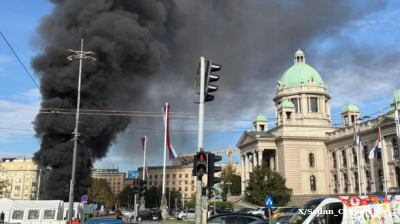In another sign of Armenia's worsening relations with Russia, its onetime ally and protector, Prime Minister Nikol Pashinyan and Foreign Minister Ararat Mirzoyan have refused to participate in a Commonwealth of Independent States (CIS) summit planned for October 13 in Bishkek, Kyrgyzstan. Armenian forces are also skipping the Russian-led Collective Security Treaty Organisation's (CSTO) military drills ongoing in Kyrgyzstan.
"President Sadyr Japarov has held a telephone conversation with Armenian Prime Minister Nikol Pashinyan ... The Armenian premier announced with regret that, due to a number of reasons, he would not be able to take part in the meeting of the CIS Heads of State Council," the Kyrgyz presidential office reported.
Yerevan has not yet officially commented on the topic. Alongside the CIS summit, Armenian and Azerbaijani top diplomats were expected to meet with their Russian counterpart Sergei Lavrov at his request to discuss among things progress towards a potential peace deal, but the meeting was cancelled after Armenia decided to send its deputy foreign minister instead of Mirzoyan.
Armenian forces have refused to take part in the CSTO one-week military manoeuvres, which kicked off near Kyrgyzstan’s Balykchy on October 6. The Kazakh Defence Ministry said troops from other CSTO members – Belarus, Kazakhstan, Kyrgyzstan, Russia and Tajikistan – are participating in the Indestructible Brotherhood drills.
Pashinyan, speaking to the country’s public TV on Tuesday, 10 October, said that Armenia was not changing its foreign policy from Russia to the West yet, saying that there are problems for both Russia and Armenia, but tied this with the relations of “big powers” and the changing world order.
Pashinyan said last month that Yerevan's "total reliance on Moscow in security matters was a mistake". He also said in September that Yerevan's involvement in the CSTO was "ineffective" for Armenia's interests.
Armenia has been a member of the CSTO since its independence, bound by a treaty pact to support member states in the event of aggression against any of them. However, the alliance's inaction in the recurrent Armenian-Azerbaijani conflict and the friendly relations of member states with Azerbaijan have been criticised in Armenia.
With the tensions increasing between Armenia and Russia since 2021, Armenia became more vocal in voicing criticism of Russia and the CSTO, refusing to participate in several trainings and not hosting the planned CSTO training in Armenia earlier this year.
Relations between Yerevan and Moscow became particularly strained after the fighting on the Armenian-Azerbaijani border in September, when Yerevan's requests for military assistance went unanswered. Armenia later accused Russia of "absolute indifference" to its pleas for help.
When Armenia moved to ratify the Rome Statute of the International Criminal Court in late September despite Russia's warnings, relations between the two countries took a new turn. Under the statute and ICC order, Armenia would be obliged to arrest Russian President Vladimir Putin if he visited Armenia. Moscow has warned of 'extremely negative consequences' following Armenia's ratification of the Rome Statute.
News

Serbian president calls fire, shooting outside parliament a terrorist attack
The attacker, a retired employee of the former State Security Service, opened fire on a tent settlement of pro-government supporters.

Bolivia's new leader must rebuild a shattered economy
Bolivia enters a new political and economic phase as centrist Rodrigo Paz prepares to take office on November 8, inheriting one of the country’s most acute crises since the hyperinflation of the 1980s.

Hungarian foreign minister says "many actors" worked to prevent Budapest summit
The White House has suspended plans for a meeting between US President Donald Trump and Russian President Vladimir Putin in Budapest.

Central Asian states registering impressive trade gains
Success despite the lack of access to a seaport.




